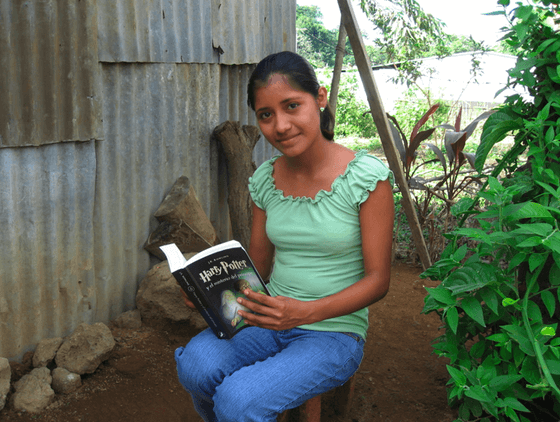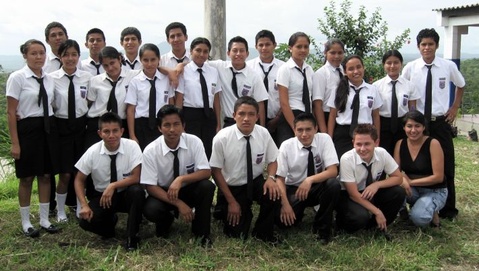
SALVADOR SCHOLARSHIPS
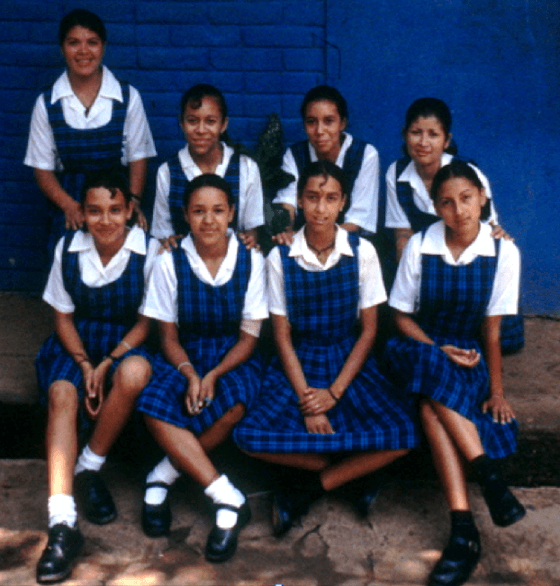
“”An educated woman is an educated mother and, as such, she is able to provide her children with a broad outlook. On the other hand, an uneducated woman is an uneducated mother who cannot broaden her children’s horizons.””
Haji Zeynalabdin Taghiyev (1823-1924),
Overview and Updates
ConTextos is proud to sponsor Salvador Scholarships, a program begun by John Kukankos and Jerry Westermeyer to provide funds for students in El Salvador to complete high school, university, or post-secondary technical school.
I finished my service as a Peace Corps Volunteer in El Salvador in October 1998. As I was leaving I realized that I could never say goodbye and wanted to stay involved with my community. As I pondered as to what I could do the thought came to me that the best contribution I could make would be to enable the children to continue their education. In my village named La Montañona, with a population of about 110, it was and still is only possible to get a 6th grade education. So the scholarship program began in 1998 providing children, who were able to find a family to live with in another community, with enough financial resources to buy school supplies, uniforms, and food. During that year the program also sponsored one girl who wanted to become a nurse and several high school students from the town of La Laguna near to La Montañona. In La Laguna there was a convent of Carmelite Missionary Sisters who agreed to monitor the scholarship students. From a small beginning of 9 students in 1998 the program has grown to about 130 students in March 2011. The program became a part of Project Salvador in 1999. Since 1998 about 320 of our scholarship students have graduated from high school and 8 have graduated from Universities or post-secondary technical schools. Five of the 8 post-secondary graduates are gainfully employed. I have not been able to ascertain how many of our high school graduates have found work.
The primary focus of the scholarship program is impoverished, young women from rural areas. About 75 percent of all the scholarship recipients are women. In rural areas of El Salvador, in families with limited financial resources, the boys are given the opportunity first to go to school particularly when students enter high school where the families have to provide their children with uniforms and school supplies and bus fare to distant high schools. Girls are often expected to stay at home to help care for younger siblings, cook, wash and gather fuel wood. During the last 15 years interacting with rural families in El Salvador, I have noticed that parents have begun to realize that girls need at least a high school education and are willing to allow them to complete high school if there are sufficient financial resources.
Project Salvador works with two Salvadoran NGOs, the Carmelite Missionary Sisters, the Sisters of Charity, and two community leaders to help carry out the program in El Salvador. These organizations help select the students, monitor their progress, and purchase school supplies, uniform materials, and shoes. In some cases they disburse cash to cover transportation costs and university fees.
Never are the students given a lump sum payment for their scholarship. Small amounts of money are disbursed on a monthly basis. One hundred percent of the donations received for the scholarship program go to program expenses. Fundraising expenses and administrative services related to the scholarship program are donated by board members. Our total disbursements this year to the scholarship program in El Salvador will exceed $80,000. Below is a Table that gives a breakdown of our scholarship student body.
Level
Number
Average Yearly Cost
Elementary
21
$150
Secondary
68
$250-$400
University or Technical School
41
$1800-$3000
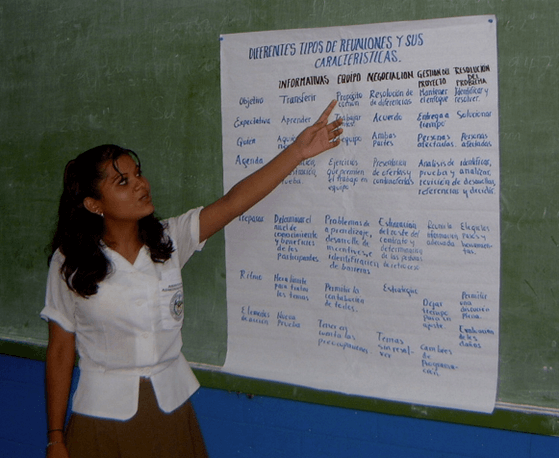
“I may not be able to find employment with my high school diploma because of our poor economy but at least I’ll be a better mother”
High School Student, La Laguna, El Salvador
Support El Salvador Scholarships
If you care to donate please make your check out to “ConTextos”, include Salvador Scholarships in the memo line, and send it to ConTextos Chicago, 2240 S Michigan Ave Chicago, IL, 60616.
If you are participating in a specific fundraiser affiliated with another organization, such as the La Grande Rotary Club, please include a note!
Twice each year I travel to El Salvador and meet with most of the students either at large regional meetings or through visits to the more isolated communities.
During these meetings we review the student grades and talk about developing good reading habits. We bring good Spanish literature with us that we check out to the students. Most of the kids cannot afford books. Sometimes at these meetings we have guest speakers who give motivational presentations.
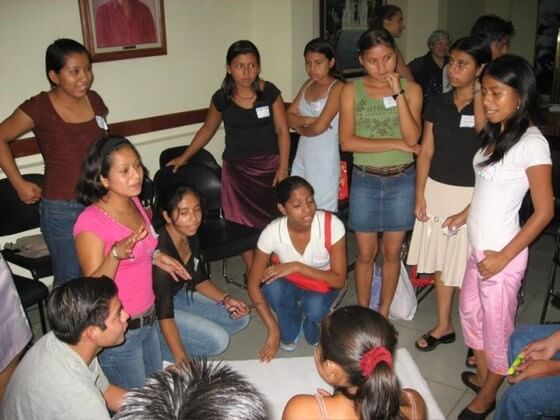
Scholarship students at semi-annual meeting in discussion group
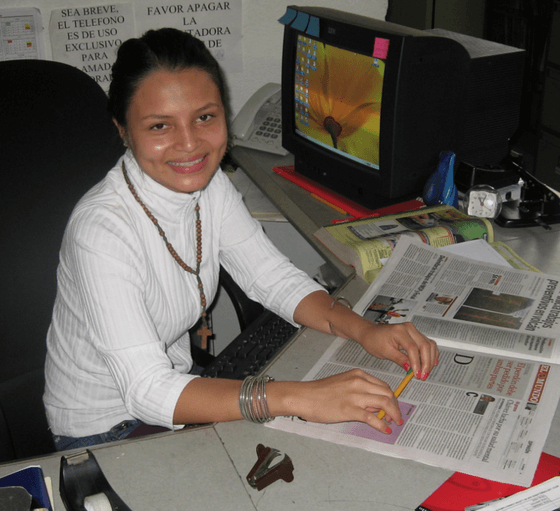
Scholarship journalism student Melissa. She wants to become a TV anchorwoman
It has been only in the past 6 years that we have begun to focus on providing scholarships for a university education. Just under 90 percent of the 41 university level students are women. Two of the women have embarked on an 8-year program to become doctors. One man is studying to become a dentist, also an 8-year commitment. Other young ladies are studying in the fields of education, sociology, journalism, social work, nursing, law, English, psychology, accounting, and public relations. I mentioned at the beginning that eight students have graduated. They received degrees in the subjects of forestry, mechanics, accounting, and physical therapy.
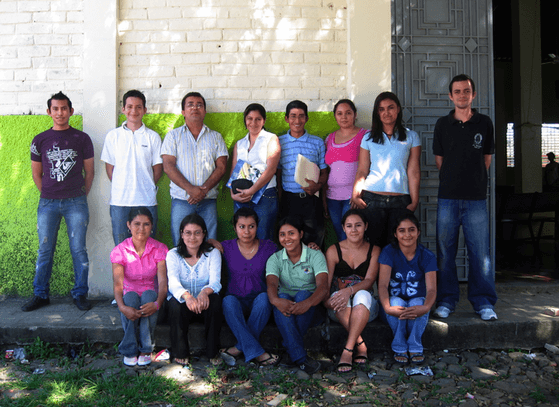
University scholarship students from the northern part of El Salvador
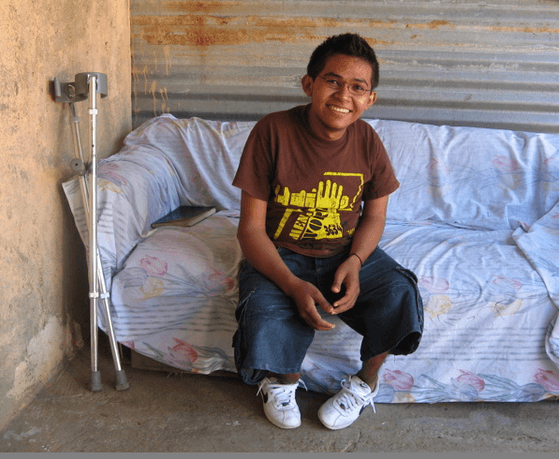
Marvin a polio handicapped student is studying law
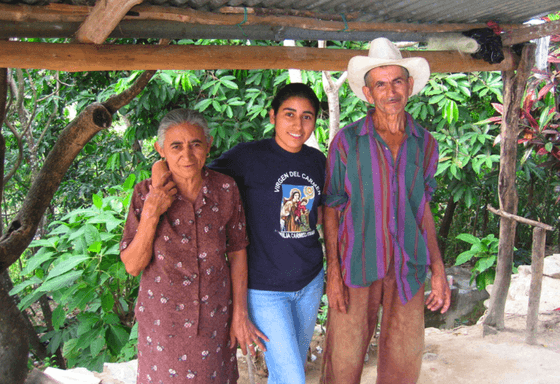
Rural scholarship student Guadalupe with mom and dad
Education is so important for a better world particularly with regards to the education of girls. “Some 58 million girls in the developing world are not in school. Whether or not a girl goes to school can be a life or death matter. In comparison to her educated counterparts, an unschooled girl is more likely to be poor, marry early, die in childbirth, lose a child to sickness or disease, have many births closely spaced and have children who are chronically ill or malnourished. In contrast, a girl who goes to school and stays there is much more likely to delay marriage and childbirth and have fewer, healthier and better-educated children. These benefits have a ripple effect throughout society as a whole. In fact, if you keep girls in school you can change the course of a nation.”(Save the Children-2005).
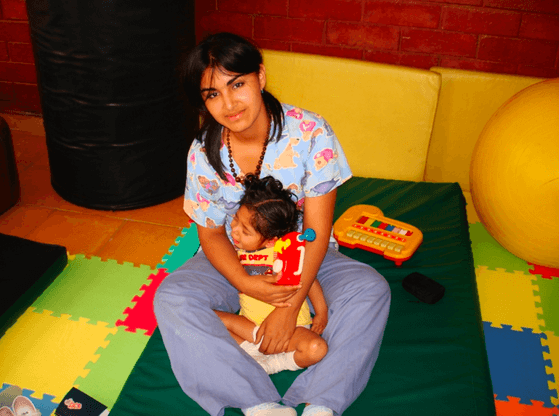
Yesenia physical therapy student working in child rehabilitation clinic
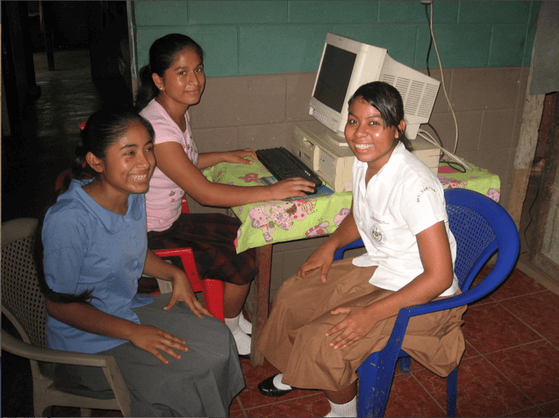
High school scholarship students from the village of Loma del Muerto taking advantage of a donated desktop computer.
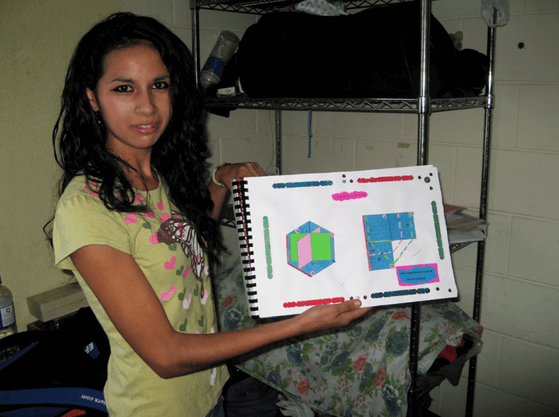
University scholarship student Marjeri shows her computer graphics skills
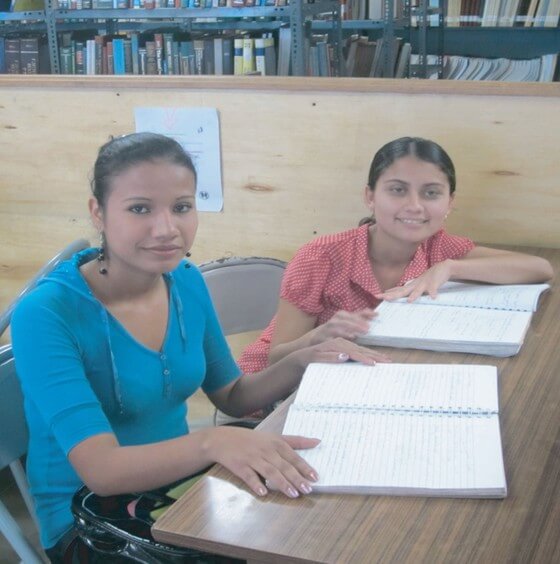
Sonia (left) and Johana medical students studying at Alberto Masferrer University in San Salvador, El Salvador
